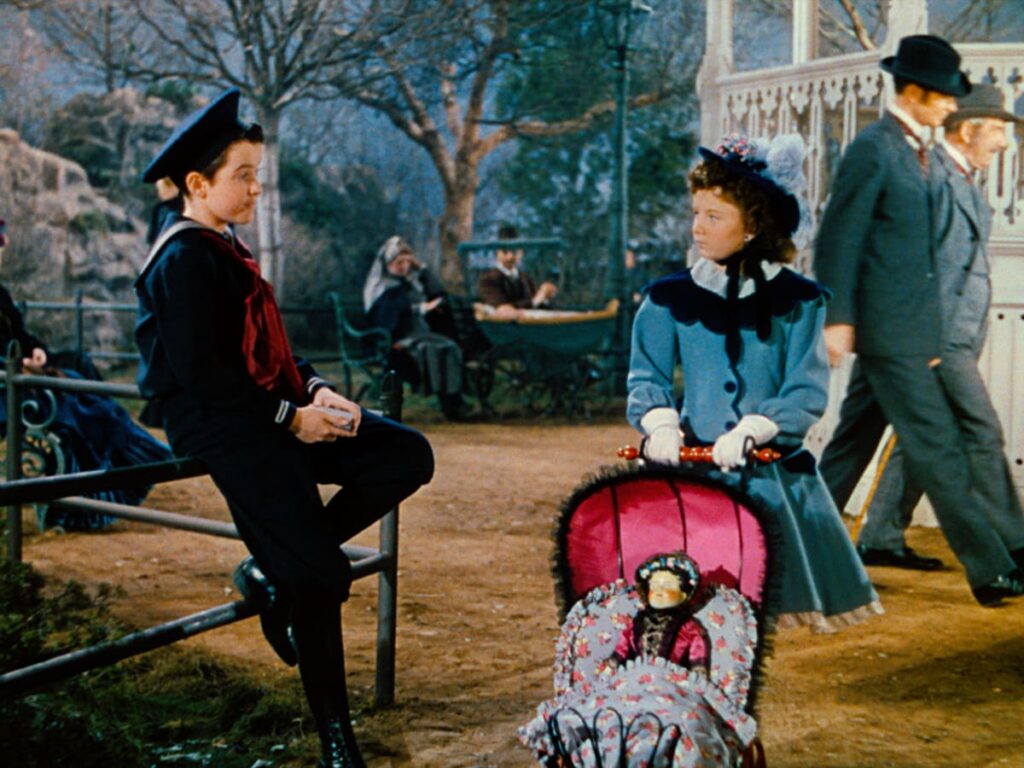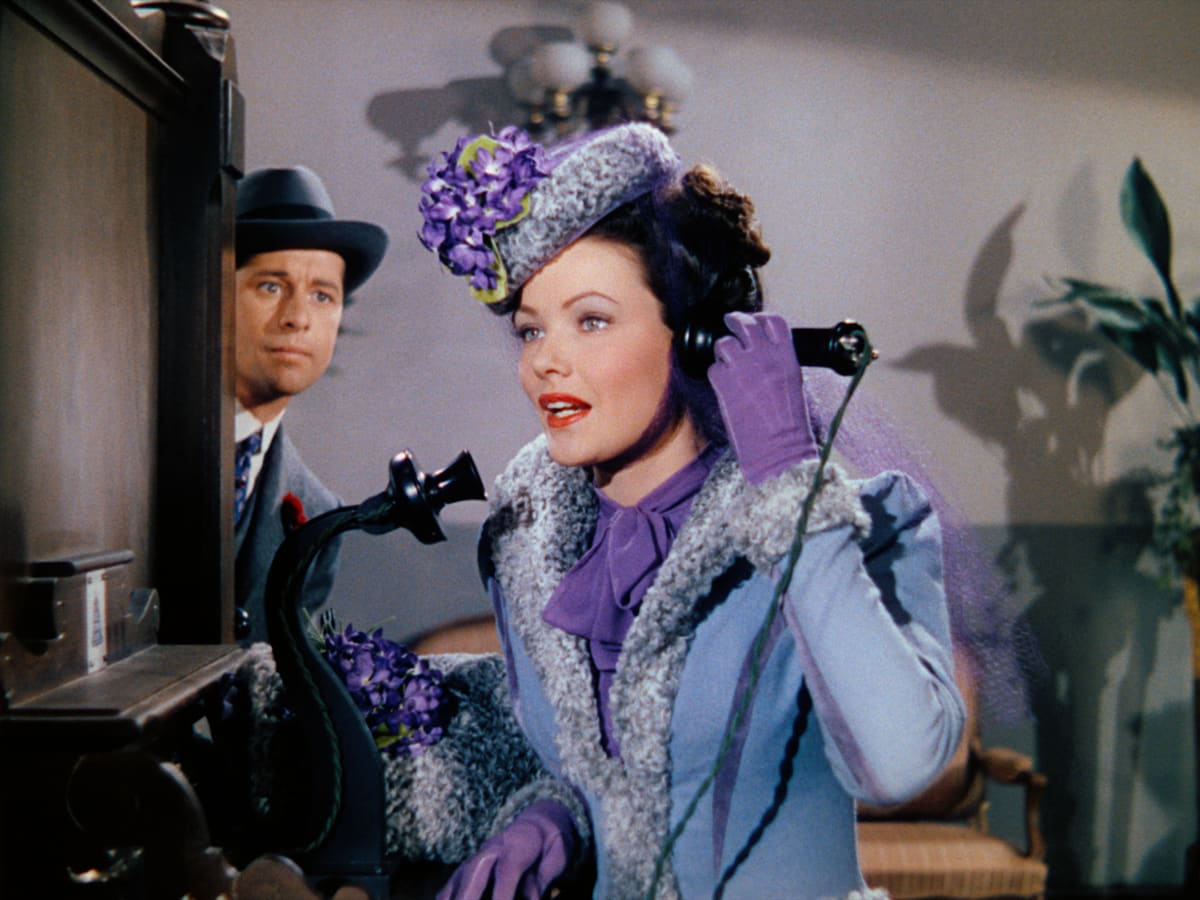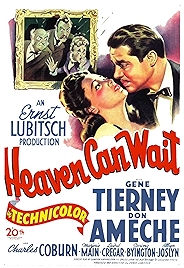Here’s the logline that the IMDb is currently using for Heaven Can Wait – “An old roué arrives in Hades to review his life with Satan, who will rule on his eligibility to enter the Underworld.” Fair enough. It’s the line everyone inevitably takes when describing this 1943 movie, which cleverly sells a headline (the supernatural stuff) only to deliver something completely different.
Yes, it does start out with Henry Van Cleve arriving in Hell, where the Devil, referred to as His Excellency throughout, refuses to grant Henry entry until he’s heard his story. And that’s the last we’ll see or hear of His Excellency until the dying moments of the film, when he delivers his verdict – does Henry enter Hell or should he be sent to “the other place”?
In between a comedy of manners following a bumptious rich man from birth to death. Henry has been born with all the gifts – money, charm, a comely appearance. He also likes to impress the ladies and it’s this wandering eye that the film is mostly concerned with. Early on we see Henry as a boy giving away his pet beetles to a girl he fancies. Later, he steals the beautiful bride-to-be from his prissy cousin Albert, marries her himself and then sets off on a long life of womanising, which his wife pays very little heed to at all. Later, after he and she have produced a son, it turns out that young Jackie Van Cleve has the old man’s wandering eye too.
In spite of the fact that Henry is not your average Hollywood hero, or husband, Ernst Lubitsch’s film works. Partly because the womanising is presented more as curse than a blessing. Partly because Henry is revealed as a silly and vain man we should pity rather than admire. Partly because Samson Raphaelson’s screenplay pushes almost all the details of Henry’s dalliances into the background. And partly because Gene Tierney is in the film, as Henry’s wife. In a great performance, Tierney really sells her character. As well as beautiful and gracious, Martha is smart and wise enough to know what Henry is about, and not foolish enough to try and change him. She’s amused by her doltish husband’s peccadilloes rather than irritated.
Don Ameche plays Henry, as an adult anyway, and is a slightly forlorn and wan presence in his own movie, not cutting through in the same way that a more charismatic actor might have done. But then another actor might have tipped the balance too much towards the womanising. Rex Harrison (a womaniser on stilts) was mooted for the role, and that would not have worked at all.

It’s set in Money New York but has the faint smell of Old Central Europe, where Lubitsch set many of his movies (and where he came from). The “Lubitsch touch” is apparent throughout, most obviously at moments where great amounts of dramatic development have to be got through, which Lubitsch does with speed, wit and novelty – for example Henry’s passing years are whisked through as a series of ties given to him as birthday presents. Another year, another tie.
This was Lubitsch’s only Technicolor movie. You can see the restoration on the Criterion disc, linked to below, and what a strange looking film it is, as if it had been shot in black and white and then colourised. Did it always look like it does now, a pastel knickerbocker glory?
Either way it’s beautifully made – clothes and sets whisk us from the late 19th century into the mid 20th, with Lubitsch never quite letting go of Old Europe. The supporting cast are also excellent, particularly Charles Coburn as Henry’s mischievous grandfather, the genetic source of Henry’s impish Casanova impulses, we suspect. Eugene Pallette and Marjorie Main are not in it much but he’s great as Martha’s bulldog, self-made father, while she plays Martha’s waspish disapproving mother. Poor Allyn Joslyn is also the business as prissy Albert, Martha’s original suitor, a man who wouldn’t know which end of a woman did what.
It’s not really funny and it isn’t really supernatural, which raises the question as to what it really is. A frothy portrait of a type of man and a class of people. They’re not like us, you know, Lubitsch and writer Samuelson are saying, if they’re saying anything much at all. If you’re the sort who likes films to say something, then there’s not much in the way of meat here. The “picture has utterly no significance” was the New York Times verdict when it came out. True enough, except as a showcase of talent, real talent.
Heaven Can Wait – Watch it/buy it at Amazon
I am an Amazon affiliate
© Steve Morrissey 2024

